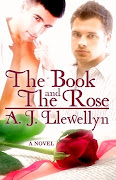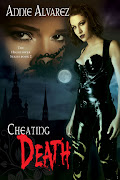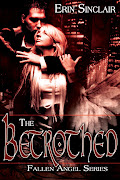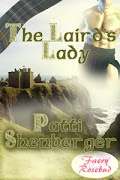
Hi Everyone,
I have something special to share with you all today - a wonderful blog by the amazing and inspirational Rhona Berens who is a Hollywood movie industry Life Coach here in Los Angeles. I love her work and have learned so much from her. I asked Rhona to guest blog today and in this post, she addresses self-limiting beliefs that affect our lives and specifically, how this works against novelists - so read on and enjoy! Love, A.J.
Self-Limiting Beliefs & Writing by Rhona Berens, PhD, CPCC
As a Life Coach, and writer, I’m always looking for ways to navigate creative roadblocks. I recently read some advice for screenwriters that went something like this: one way to get in the game is to throw your hat in the ring. If a writer announces—to colleagues, professional contacts—that she’s polishing a script for an agent, or [fill in the blank with a time-constrained goal and someone to whom you pledge completing that goal], the deed will be done. If we create accountability structures—actions for which we’re accountable to others—we’ll propel ourselves forward and “just do it.”
That’s sound advice. Solid advice. Inspiring advice, even. Except if you’re a writer for whom self-doubt (and its pal, Paralysis) is a more familiar comfort-zone than confidence (and its buddy, Action). If you’re that kind of writer, it’s often hard to get into the game and, harder still, to stay in it. So what’s that fiction writer to do?
I want to introduce a technique to help you step more consistently away from self-doubt and toward self-confidence. In other words, I’m going to encourage you to expand yourself as a writer by expanding yourself as, well, you. (Groan.) I heard that; I also saw the dismissive wave some of you just gave. Bear with me. What does any of this have to do with staying in the game? First of all, it’s pretty hard to tease apart you from the writer, the writer from you. Second, shifting how you do things (including how you view yourself) is an opportunity to befriend those, sometimes, elusive comrades: Confidence, Accountability, and Action. The idea is for you to hone a new skill that helps you generate sustained energy and passion to get your work read… and bought … and published. Who knows? Maybe you’ll also find some golden nuggets along the way to improve your writing, too.
The story of your reality
I’ve been thinking a lot lately about the ways in which people—not just writers—storify pretty much everything. I stumbled on the word “storify” a few weeks ago when I considered turning the noun, story, into a verb (e.g., to story my experiences), just like businesspeople have morphed the word “grow” so that now they can grow a company. Turns out, storify does what I was looking for: “To form or tell stories of; to narrate or describe in a story;” or, most succinctly, “to make up.”
To state the obvious: Fiction writing is, at its core, the ability to storify scenarios and characters. To state the not so obvious: Autobiography—including our self-focused thoughts and beliefs that we never write down—is how we storify ourselves. What I mean is, we believe a lot of the stuff we make up about ourselves (or others); we often believe what others make up about us; and, sometimes, we believe what we think they make up about us. In short, humans storify all the time; writers take that skill and parlay it into art.
Let’s take a closer look at one common “storifying” tool that’s an entrée into growing ourselves (and a boon to character development): Self-Limiting Beliefs. Brian Tracy, a motivational speaker and author, defines a Self-Limiting Belief (a.k.a. SLB) as: “An idea you have that you are limited in some way, in terms of time, talent, intelligence, money, ability, or opportunity.” I’d add a few other items to his list, like the belief you’re limited by how well or poorly (you think) others love, respect, or treat you. Plus, there are limitations you might ascribe to yourself based on appearance, cultural or ethnic background, gender, age... you get the picture.
The bottom line is: SLBs constrain how (far) we take action in our lives. If we’re in the territory of our SLBs, we might take some action, maybe the first or second or third step toward a goal. Then an SLB will intervene, either in the form of discouraging words articulated by our own Inner Critic or by rejection/criticism from people in our daily lives, whose opinions matter to us (even when we say they don’t). What’s the impact? We stop sprinting full-tilt boogie toward the finish line for the things we really want to do, the person we believe we can be, the dreams we yearn to fulfill. In other words, when it comes to our own lives, SLBs suck the momentum right out of us.
Want to find out how you can overcome your SLBs and use SLBs as a tool to develop fictional characters? Click Rhona Berens - Self-Limiting Beliefs & Novelists at http://www.fortedreams.com/resources-overview to download a free copy of Rhona’s complete article. If you’re interested, you can also sign up for a complimentary coaching session.
As a Life Coach, and writer, I’m always looking for ways to navigate creative roadblocks. I recently read some advice for screenwriters that went something like this: one way to get in the game is to throw your hat in the ring. If a writer announces—to colleagues, professional contacts—that she’s polishing a script for an agent, or [fill in the blank with a time-constrained goal and someone to whom you pledge completing that goal], the deed will be done. If we create accountability structures—actions for which we’re accountable to others—we’ll propel ourselves forward and “just do it.”
That’s sound advice. Solid advice. Inspiring advice, even. Except if you’re a writer for whom self-doubt (and its pal, Paralysis) is a more familiar comfort-zone than confidence (and its buddy, Action). If you’re that kind of writer, it’s often hard to get into the game and, harder still, to stay in it. So what’s that fiction writer to do?
I want to introduce a technique to help you step more consistently away from self-doubt and toward self-confidence. In other words, I’m going to encourage you to expand yourself as a writer by expanding yourself as, well, you. (Groan.) I heard that; I also saw the dismissive wave some of you just gave. Bear with me. What does any of this have to do with staying in the game? First of all, it’s pretty hard to tease apart you from the writer, the writer from you. Second, shifting how you do things (including how you view yourself) is an opportunity to befriend those, sometimes, elusive comrades: Confidence, Accountability, and Action. The idea is for you to hone a new skill that helps you generate sustained energy and passion to get your work read… and bought … and published. Who knows? Maybe you’ll also find some golden nuggets along the way to improve your writing, too.
The story of your reality
I’ve been thinking a lot lately about the ways in which people—not just writers—storify pretty much everything. I stumbled on the word “storify” a few weeks ago when I considered turning the noun, story, into a verb (e.g., to story my experiences), just like businesspeople have morphed the word “grow” so that now they can grow a company. Turns out, storify does what I was looking for: “To form or tell stories of; to narrate or describe in a story;” or, most succinctly, “to make up.”
To state the obvious: Fiction writing is, at its core, the ability to storify scenarios and characters. To state the not so obvious: Autobiography—including our self-focused thoughts and beliefs that we never write down—is how we storify ourselves. What I mean is, we believe a lot of the stuff we make up about ourselves (or others); we often believe what others make up about us; and, sometimes, we believe what we think they make up about us. In short, humans storify all the time; writers take that skill and parlay it into art.
Let’s take a closer look at one common “storifying” tool that’s an entrée into growing ourselves (and a boon to character development): Self-Limiting Beliefs. Brian Tracy, a motivational speaker and author, defines a Self-Limiting Belief (a.k.a. SLB) as: “An idea you have that you are limited in some way, in terms of time, talent, intelligence, money, ability, or opportunity.” I’d add a few other items to his list, like the belief you’re limited by how well or poorly (you think) others love, respect, or treat you. Plus, there are limitations you might ascribe to yourself based on appearance, cultural or ethnic background, gender, age... you get the picture.
The bottom line is: SLBs constrain how (far) we take action in our lives. If we’re in the territory of our SLBs, we might take some action, maybe the first or second or third step toward a goal. Then an SLB will intervene, either in the form of discouraging words articulated by our own Inner Critic or by rejection/criticism from people in our daily lives, whose opinions matter to us (even when we say they don’t). What’s the impact? We stop sprinting full-tilt boogie toward the finish line for the things we really want to do, the person we believe we can be, the dreams we yearn to fulfill. In other words, when it comes to our own lives, SLBs suck the momentum right out of us.
Want to find out how you can overcome your SLBs and use SLBs as a tool to develop fictional characters? Click Rhona Berens - Self-Limiting Beliefs & Novelists at http://www.fortedreams.com/resources-overview to download a free copy of Rhona’s complete article. If you’re interested, you can also sign up for a complimentary coaching session.












6 comments:
Thank You for the inspiration and something to think about :o)
great post! glad there was the link to the full article. this has come at a good time too. i'm going to share this blog link with some people.
=)
C.
Hi Silver and CR, thanks! In the extended article, Rhona uses the screenplay When Harry Met Sally as an example of her points - a real eye-opener. Silver, hope the writing is going great!
Thank You AJ it is going.. i am plugging away at it and i am trying not to let things get in my way.
I am not a writer but I think your advice applies to other aspects of life as well. Thanks for sharing.
Wonderful post, A.J.!
We were just talking about this very concept the other night after critique group and realized each of us had some hurdle we had to overcome each time we completed a work.
I will be checking her out asap!
Thanks!
Lynn
Post a Comment